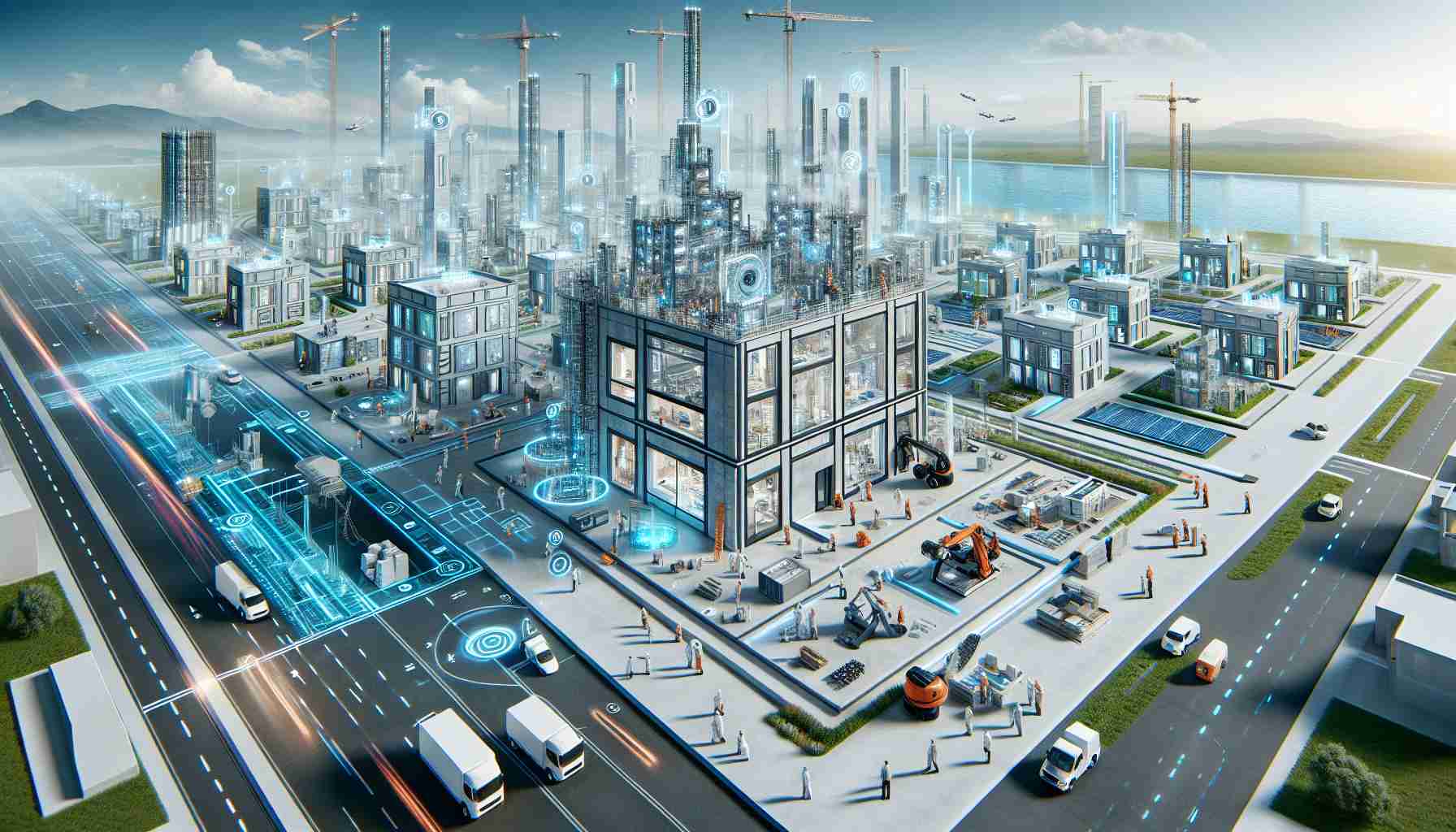- The AI Small Molecule Drug Discovery Center at Mount Sinai leverages AI and medicinal chemistry to revolutionize drug discovery.
- AI accelerates the traditionally lengthy drug discovery process, making it possible to identify potential treatments in months rather than years.
- Focus areas include creating new drug-like molecules with generative AI, enhancing existing compounds, and predicting drug-target interactions.
- The Center fosters collaborations with pharmaceutical, biotech, and academic leaders to tackle diseases like cancer and neurodegenerative disorders.
- It aims to educate future scientists through AI-driven drug discovery training, seminars, and hackathons.
- Mount Sinai’s initiative aligns with its commitment to precision medicine, combining AI and genetic insights for personalized therapeutics.
- Key experts leading the Center include Jian Jin and Marta Filizola, who provide expertise in synthetic chemistry and computational biophysics.
A monumental shift is underway at the Icahn School of Medicine at Mount Sinai, where the newly launched AI Small Molecule Drug Discovery Center is poised to redefine how we create life-saving medicines. This pioneering center marries the boundless potential of artificial intelligence with the precision of traditional medicinal chemistry, promising to deliver new therapies at a pace and scale previously deemed impossible.
Traditional drug discovery is a labyrinthine process, taking years and vast fortunes to traverse. Scientists laboriously sift through a chemically dense wilderness, seeking molecules that might hold the key to treating debilitating diseases. Now, armed with the formidable power of AI, researchers can swiftly navigate this complex chemical landscape. By harnessing sophisticated machine learning algorithms, they identify promising drug candidates, accelerating a process that once took years into what could potentially be months.
The center is laser-focused on three transformative areas: crafting novel drug-like molecules using generative AI, refining existing compounds to sharpen their efficacy, and foreseeing drug-target interactions to breathe new life into old drugs for new indications. Experts will pull from immense datasets, training AI models to predict the hidden properties of compounds before they are painstakingly synthesized in the lab—a revolutionary leap that may save valuable time and resources.
Beyond just technological marvels, this new center stands as a bastion of collaboration. It aims to forge alliances with leading pharmaceutical giants, biotech innovators, and academic pioneers to propel drug development into a new era. These partnerships could unleash a wave of innovation, tackling diseases with urgent unmet needs such as cancer, metabolic disorders, and neurodegenerative ailments.
Moreover, the Center is dedicated to preparing tomorrow’s scientific leaders. It offers hands-on training in AI-driven drug discovery, holding seminars, and organizing hackathons that immerse budding scientists in the thrilling frontiers of biomedical research.
The initiative is the latest in Mount Sinai’s trailblazing journey into biomedical AI, closely following the recent launch of their cutting-edge AI facility and the Center for Artificial Intelligence in Children’s Health. As confirmed by Dr. Alexander Charney, this endeavor seeks to merge AI with genetic insights, crafting bespoke therapeutics tailored to individual biological frameworks. It challenges the status quo, heralding a move towards precision medicine that could transform how complex disorders are managed.
In guiding these revolutionary efforts, a team of distinguished experts sits at the helm. Their esteemed achievements in drug discovery and AI lend a robust backbone to the Center’s mission. With scientists like Jian Jin and Marta Filizola providing deep expertise in synthetic chemistry and computational biophysics, the Center is well-equipped to make groundbreaking strides in medicine.
As Mount Sinai’s experts build this advanced AI infrastructure, they glance confidently towards the future. Over the next two years, they anticipate unveiling significant breakthroughs that will only strengthen their claim as leaders in the biomedical arena. At this intersection of science and technology lies a simple yet profound truth: AI isn’t just augmenting how we discover drugs—it’s revolutionizing it, offering a beacon of hope for untreatable and complex diseases. In doing so, Mount Sinai isn’t just rewriting the rulebook of drug discovery; it’s crafting entirely new chapters.
Revolutionizing Drug Discovery: How AI is Redefining Modern Medicine
Understanding the Impact of AI on Drug Discovery
The Icahn School of Medicine at Mount Sinai’s recently launched AI Small Molecule Drug Discovery Center is a groundbreaking development in the realm of pharmaceuticals. Through the integration of artificial intelligence and traditional medicinal chemistry, the center is paving the way for faster, more efficient life-saving medicine creation.
Traditional vs. AI-Enhanced Drug Discovery
Traditional drug discovery often involves a lengthy and expensive process of identifying viable drug candidates, with years of painstaking research in the search for compounds with therapeutic potential. In contrast, the adoption of AI accelerates this process significantly by leveraging machine learning algorithms to sift through vast chemical datasets, predict outcomes, and generate promising drug candidates in a fraction of the time.
Key Areas of Focus:
1. Generative AI: Utilizing AI to design novel drug-like molecules.
2. Compound Optimization: Refining existing compounds to enhance their efficacy.
3. Drug-Target Predictions: Using AI to predict interactions for repositioning existing drugs for new applications.
Industry Collaborations and Educational Initiatives
The center actively seeks partnerships with pharmaceutical companies and biotech firms, which could lead to breakthrough collaborations addressing urgent medical needs, including cancer, metabolic disorders, and neurodegenerative diseases. Additionally, an educational component is provided, offering training in AI-driven drug discovery, which is vital for preparing future leaders in the biomedical sector.
Real-World Use Cases and Implications
The advancements envisioned by the Mount Sinai team can potentially revolutionize several aspects of medicine:
1. Personalized Medicine: By integrating AI and genetic insights, there is a distinct push towards developing personalized treatment protocols.
2. Rapid Prototyping: Accelerating the initial stages of drug development can lead to quicker clinical trials and faster availability of new therapies.
3. Cost Reduction: AI can potentially decrease the costs associated with drug development, making treatments more affordable and accessible.
Market Forecasts and Emerging Trends
The global AI in drug discovery market is expected to grow substantially, driven by increased acceptance of AI technology, partnerships between AI providers and pharmaceutical companies, and continuous advancements in machine learning algorithms.
Potential Limitations and Ethical Concerns
While AI holds great promise, some challenges remain:
– Data Privacy: Ensuring patient data used for AI modeling remains confidential and safely stored.
– Ethical Implications: Addressing concerns regarding AI’s decision-making in drug efficacy and safety.
– Regulatory Trajectory: Navigating the emerging landscape of AI regulation within the pharmaceutical industry.
Security, Sustainability, and Future Predictions
AI technology offers significant benefits, including improved data security through blockchain and sustainable practices by reducing resource-intensive trial and error methods. Experts foresee that within two years, Mount Sinai will make significant contributions to global medicine, positioning the institution as a leader in AI-driven healthcare solutions.
Actionable Recommendations
– For Researchers: Engage with AI tools to enhance drug discovery processes through workshops or hackathons.
– For Pharmaceutical Companies: Collaborate with AI-focused research centers to boost innovation.
– For Students: Consider specializing in data science or computational biology to be at the forefront of AI medical revolution.
To explore further about AI innovations in healthcare, visit the Mount Sinai Health System.
In summary, the Icahn School’s innovative center is a testament to how AI is not just complementing but fundamentally changing drug discovery, offering newfound opportunities and hope for millions facing untreatable diseases.









